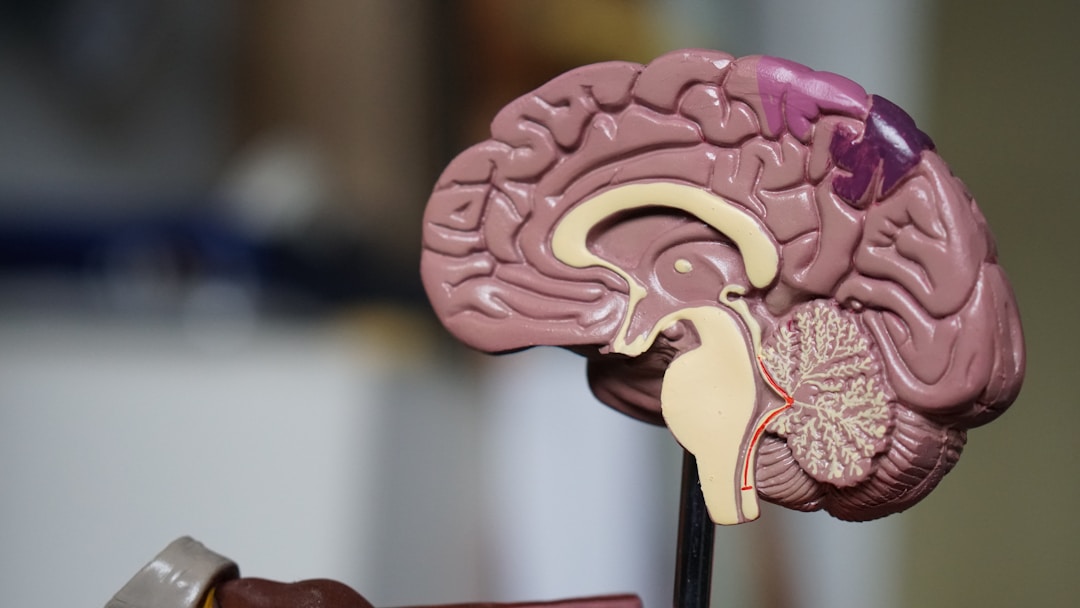Dementia is a term that creates confusion, often interwoven with Alzheimer’s disease in public discourse. However, it’s crucial to distinguish between the two, as they encompass different medical realities. Dementia refers to a set of symptoms affecting memory, cognitive function, and the ability to perform everyday tasks. This article aims to clarify the distinctions, shedding light on the specifics of Alzheimer’s disease and how it fits within the broader category of dementia. Keep reading to understand these differences fully and the implications for treatment and care.
Understanding Dementia as an Umbrella Term for Cognitive Decline
Dementia isn’t a single illness but a range of neurological conditions causing cognitive decline. Symptoms vary, including memory loss, reasoning difficulties, and personality changes. Alzheimer’s is the most common cause.
Symptoms differ among individuals and types of dementia but may include memory problems and struggles with daily tasks. Alzheimer’s, vascular dementia, Parkinson’s, and Lewy body dementia are common causes. Some types can be reversed, while others, like Alzheimer’s, worsen over time.
Recognizing dementia is crucial for seeking proper treatment. Understanding it as a symptom helps tailor care. Families and caregivers should understand the condition’s complexities. Explore Alzheimer’s disease vs dementia for deeper insights.
Exploring the Unique Characteristics of Alzheimer’s Disease
Alzheimer’s disease, the most prevalent form of dementia worldwide, is characterized by abnormal protein deposits in the brain, leading to nerve cell death and cognitive decline. Its progression typically follows a predictable pattern from mild memory lapses to severe cognitive impairment.
Early detection of Alzheimer’s can be challenging due to its similarity to age-related memory loss, but distinct symptoms like language difficulties and impaired reasoning signal its onset. As the disease advances, symptoms worsen, encompassing disorientation, mood changes, and confusion about time and place.
While Alzheimer’s currently lacks a cure, treatments aim to manage symptoms and improve quality of life. Ongoing research into its causes and development holds promise for more effective interventions tailored to its specific pathological processes. Understanding Alzheimer’s unique characteristics is crucial for advancing targeted treatments.
Differencing Symptoms and Progression in Alzheimer’s and Dementia
Dementia encompasses a range of symptoms, but Alzheimer’s disease typically progresses gradually through early, middle, and late stages, marked by increasingly severe symptoms like difficulty with familiar tasks and confusion with time or place. Other dementias, such as vascular dementia, may progress more unpredictably, often correlating with vascular events like strokes.
Symptoms specific to Alzheimer’s worsen over time, including difficulty with familiar tasks and trouble with spatial awareness. In contrast, other dementias may present with early personality changes, movement disorders, or changes in executive function, depending on their cause.
Dementia progression varies based on the underlying cause, with some types having episodic symptoms while Alzheimer’s follows a relentless decline without plateau phases. Symptoms like language issues, mood swings, and misplacing possessions may persist and intensify in Alzheimer’s, distinguishing it from other types of dementia.
Care plans for Alzheimer’s patients focus on managing progressive cognitive decline and complications that arise with advanced stages of the disease.
Tracing the Causes: Genetic and Environmental Factors in Alzheimer’s and Dementia
Dementia, including Alzheimer’s disease, arises from a blend of genetic, environmental, and lifestyle influences. In Alzheimer’s, gene mutations are key, notably in early-onset cases, while the APOE-e4 gene is a primary risk factor for late-onset cases. Vascular dementia, on the other hand, results from damage to brain blood vessels, while dementia with Lewy bodies stems from abnormal protein deposits in the brain.
Environmental factors and lifestyle choices also factor in, with diets high in fat and cholesterol, limited exercise, and toxin exposure increasing dementia risk. Conversely, a healthy lifestyle with regular exercise, a balanced diet, and mental stimulation can mitigate risk.
While causes may differ, dementia types share common risk factors like aging, cardiovascular health, and education level. Recognizing these multifaceted causes is crucial for prevention and tailored treatment strategies aimed at delaying cognitive decline.
Comparing Treatment and Management Options for Alzheimer’s Disease and Dementia
Dementia management varies based on the type and severity of symptoms. Alzheimer’s treatment mainly focuses on symptom control through medications and non-drug methods like social engagement and cognitive therapy.
For vascular dementia, addressing cardiovascular issues is key, such as controlling blood pressure and cholesterol. Dementia with Lewy bodies requires a combined approach to manage both cognitive decline and movement symptoms effectively.
Support for families and caregivers is crucial, involving educational programs, support groups, and care planning. Early diagnosis and intervention are essential for effective management.
Ongoing research aims to find new treatment options and potential preventive measures for Alzheimer’s and other dementias, with a shared goal of improving the lives of those affected and their caregivers.
Overall, understanding the differences between Alzheimer’s disease and other forms of dementia is crucial for effective diagnosis and care. Each condition presents unique symptoms, progression patterns, and causes, requiring tailored therapeutic approaches. By recognizing these nuances, patients, families, and healthcare providers can better manage the challenges posed by these conditions.
The Role of Memory Games in Cognitive Health
Importance of Memory Games
Memory games are a valuable tool in maintaining and enhancing cognitive health, particularly for individuals at risk of or diagnosed with dementia and Alzheimer’s disease. These games help stimulate the brain, improve memory, and delay cognitive decline. The benefits of memory games include:
- Enhanced memory: Regular engagement with memory games can improve recall and cognitive function.
- Increased attention: These games often require focus and concentration, which can help improve overall attention span.
- Problem-solving skills: Many memory games involve solving puzzles or completing tasks that enhance problem-solving abilities.
- Social interaction: Group memory games encourage socialization, which is beneficial for mental health.
Examples of Memory Games
There are various types of memory games that can be beneficial, including:
- Matching games: Games where players must match pairs of cards or images.
- Puzzles: Jigsaw puzzles and logic puzzles that challenge the brain.
- Word games: Crossword puzzles, word searches, and other language-based games.
- Board games: Strategy games that require planning and memory skills, such as chess or checkers.
Understanding Neuroplasticity
What is Neuroplasticity?
Neuroplasticity, also known as brain plasticity, refers to the brain’s ability to reorganize itself by forming new neural connections throughout life. This adaptability allows the brain to compensate for injury and disease and adjust to new situations or changes in the environment.
Role of Neuroplasticity in Cognitive Health
Neuroplasticity plays a crucial role in maintaining cognitive health and combating the effects of dementia and Alzheimer’s disease. Key aspects include:
- Recovery from brain injury: Neuroplasticity allows the brain to recover functions lost due to injury by re-routing functions through healthy areas.
- Learning and memory: Engaging in new activities and learning new skills can promote the formation of new neural connections, enhancing memory and cognitive abilities.
- Adaptation to disease: In conditions like Alzheimer’s, neuroplasticity can help the brain compensate for damaged areas, potentially slowing the progression of symptoms.
Conclusion
Understanding the key differences between Alzheimer’s disease and dementia is essential for effective diagnosis, management, and care. While Alzheimer’s is a specific neurodegenerative disease characterized by unique brain changes and symptoms, dementia encompasses a broader spectrum of cognitive impairments caused by various conditions. Recognizing these differences can lead to more targeted treatment options and better support for individuals and their families as they navigate the challenges of cognitive decline.
The use of memory games and the concept of neuroplasticity offer promising avenues for enhancing cognitive health and managing symptoms associated with dementia and Alzheimer’s disease. By incorporating mental stimulation and encouraging neuroplasticity, individuals can improve their cognitive function and quality of life. As research continues to advance, a deeper understanding of these strategies will further enhance our ability to support those affected by these conditions and work towards finding more effective treatments and interventions.

Get 4 Free Sample Chapters of the Key To Study Book
Get access to advanced training, and a selection of free apps to train your reading speed and visual memory



